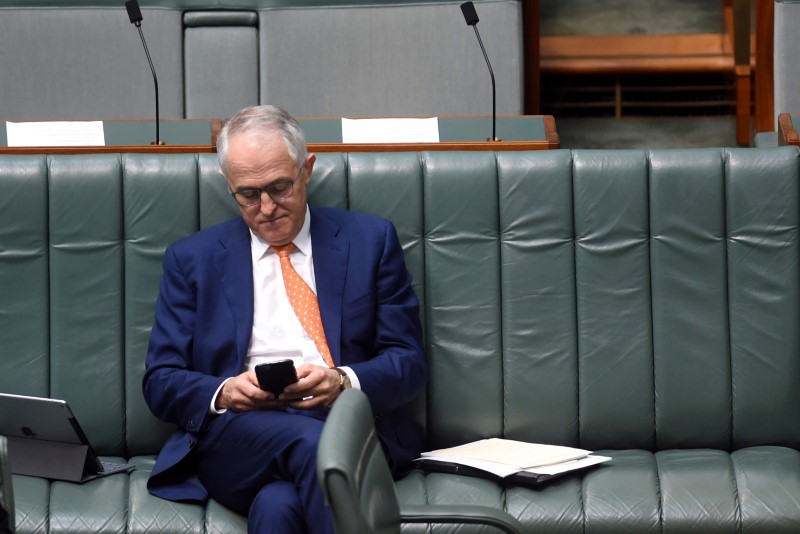MELBOURNE, May 30 (Reuters) - The Australian government said on Tuesday it would introduce legislation to allow clean energy funds to back carbon capture and storage projects, a move that could see such money going to coal-fired plants even as the nation combats climate change.
Environment and Energy Minister Josh Frydenberg said the government was seeking to amend the mandate for the Clean Energy Finance Corp (CEFC), which up to now has been limited to giving loans to wind, solar, bioenergy and energy storage projects.
CEFC's mandate is to help cut carbon emissions and promote new technologies.
"This amendment that we're introducing only applies to carbon capture and storage," Frydenberg told reporters in Canberra.
However, if carbon capture and storage (CCS) technology is attached to a high efficiency-low emissions coal-fired power station, a gas-fired power plant or an industrial plant, that would be eligible for funding from the CEFC, he said.
CEFC would have the final say over what CCS projects get funding, he noted.
Australia's conservative government wants a "technology neutral" approach to promoting stable power supply, seeing coal- and gas-fired power as essential to back up wind and solar energy when the wind is low and the sun is down.
"The decision that the government's made is significant because it removes one of the barriers to CCS, which has been around the financing of it," said Brad Page, chief executive of Melbourne-based Global CCS Institute.
He said CCS technology could be retrofitted to existing coal-fired, gas-fired and industrial plants, not just attached to new plants.
The Australia Institute, a think tank opposed to coal, said it did not make sense to take money from renewable energy to back CCS, as previous funding had not yielded much over the past two decades.
The announcement on the legislation comes about 10 days ahead of a highly anticipated report by Australia's chief scientist on what steps the country needs to take to ensure power and gas supplies are secure, reliable and affordable, while also cutting carbon emissions.
The report was commissioned last year by the government following a string of blackouts and price spikes in the state of South Australia, which relies on wind and solar energy for more than 40 percent of its power. a decade of uncertainty over Australia's carbon policy, major miners, like BHP BHP.AX BLT.L , manufacturers and the power industry have called for a carbon price and emissions trading to help companies make investment decisions on new power stations.
Prime Minister Malcolm Turnbull reiterated on Tuesday, however, that the government would not pursue an emissions intensity scheme, a system that would set limits on how much carbon a site could emit and give tradable credits to those that emit less than the limit.
